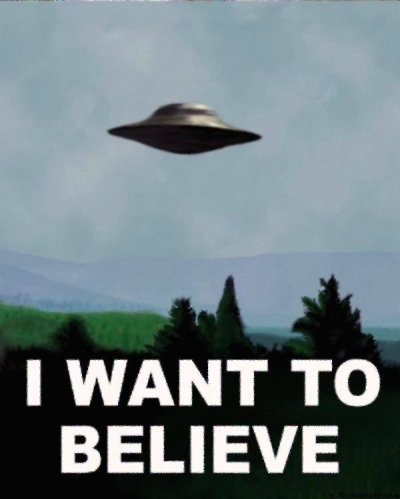Abracadabra: Language, Memory, Representation
The Recurse of Dracula.
Chapters 15-17
"My thesis is this: I want you to believe." --Van Helsing, (p 172).
The end of chapter 17, in particular (pg 202 in the Auerbach version) marks a very important structural point in the novel. It is at this point that the characters literally join us (the readers) in the understanding of the situation. It is the point at which not only our own belief, but that of the characters is forced to coincide.
At the end of chapter 14, we saw Jonathan literally cured by Van Helsing, simply by his reading of Jonathan's diary. He starts writing again, and says to Van Helsing:
I was in doubt, and then everything took a hue of unreality, and I did not know what to trust, even the evidence of my own senses. Not knowing what to trust, I did not know what to do; and so had only to keep on working in what had hitherto been the groove of my live. The groove ceased to avail me, and I mistrusted myself. Doctor, you don't know what it is to doubt everything, even yourself. No, you don't; you couldn't with eyebrows like yours. (p. 168)
Jonathan's relationship to certainty depends upon the circulation of information, he cannot trust his own senses, but only the verification by others. His version of truth requires peer review. Compare this with Dr. Seward, who is the most stubbornly skeptical creature in the novel, who says to Van Helsing:
'Tell me!' I said. 'I can hazard no opinion. I do not know what to think, and I have no data on which to found a conjecture.' (p.170)
And later, even after the evidence of his senses has shown him Lucy's tomb empty, and then once again occupied, he continues to doubt:
It is wonderful what a good night's sleep will do for one. Yesterday I was almost willing to accept Van Helsing's monstrous ideas; but now they seem to start out lurid before me as outrages on common sense. I have no doubt that he believes it all. (181)
Seward will come round of course, and once he meets up with Mina and her typewriter, becomes all the more adamant that trust is equated with reading.
What is at stake here (haha), is nothing less than the question of how believe-- rational belief-- is related to social organization and communication. The lone individual is powerless-- indeed, is driven to madness repeatedly (or to accustaions of madness, which is what Seward says of Van Helsing, and everyone (but Mina) says of Renfield); only the group, as a known quantity of people who do not keep secrets from each other, and trust each other because they read what each has written. This scene is repeated over and over. As when Mina requests to listen to Seward's phonograph.
Why does Seward attempt to prevent Mina from hearing the phonograph diary? What does he think he knows? What does Mina think he thinks he knows, and how does she convince him that she knows what he thinks he knows? Mina says:
"You do not know me," I said. "When you have read those papers-- my own diary and my husband's also, which I have typed-- you will know me better." (196)
Seward replies:
"You are quite right. I did not trust you because I did not know you. But I know you now; and let me say that I should have known you long ago. I know that Lucy told you of me; she told me of you too. May I make the only atonement in my power." (196)
When Mina finally listens to the phonograph, she is convulsed with emotion, but not so much that she can't also transcribe it (she's Vannevar Bush's super-secretary avant le lettre, but a machine still capable of intense emotion and motherly concern.
Some technical issues:
- Mina and Jonathan correlate all the information they can find-- the letters from the solicitors, newspaper articles, letters and of course, everyone's diary. It is this act of clerical heroism that gives up the first 200 pages of the book.
- Seward is please with Mina's transcription because he realizes that the phonograph is not a random access memory: he has no way of knowing where any entry is, or what dates without the transcription.
- Mina makes "manifold" typescipts, i.e. copies for everyone. It is this act of collation and copying that puts the characters in the book into the same state of knowledge-- and belief?-- as the reader.
- Why do we speak of a "willing suspension of disbelief?" What about the novel, about the fact of fiction, makes it possible to disbelieve? Do the characters in the novel ever suspend their disbelief?
In anthropological terms, the problems Dracula addresses can be thought of as those of the "self-description of modern society". There are many people and institutions in a given society that are assumed to be responsiple for action-- but there are many others that produce information solely used to guide action. Consider economic indicators (consumer confidence, interest rates, housing prices etc.). Or consider human rights reports or World Health Organization warnings and advisories. These kinds of information are produced by the institutions of society as descriptions meant to guide the actions of society itself.
Similarly, the novel Dracula is not simply a description of events-- not simply a transmission from the 19th century about a mystical figure meant to frighten us. It is not just a good read for us-- it is also a good read for the characters in the book itself.
The description of events in Dracula orders the events in Dracula itself. The diary entries that we read are discussed not by us, but by people in the novel. They talk about information technologies incessantly, because it is what allows them to control the situation through describing it. Or not...
